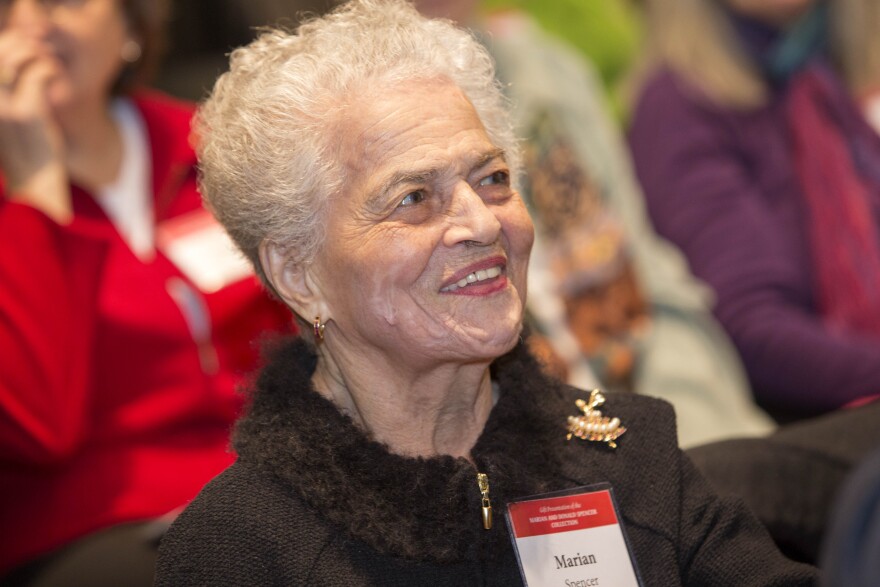How nice that the Cincinnati Democratic Committee says it does not want to confuse voters in the Cincinnati City Council and school board elections this year.
How odd, though, that they think having their endorsed candidates be cross-endorsed by the Charter Committee (or any other political party) would confuse the voters.
These off-year elections generally garner a fairly low turnout and, in my experience, which dates back to 1983, the voters who do turn out are the ones who are paying the most attention.
The Cincinnati Democratic Committee, made up of all the party precinct executives, sent this out via social media to Democrats last week, laying out the new policy of not accepting endorsements from other political parties. We won't know who the endorsed candidates are until later this spring, after the party committee has gone through its vetting process.
But wait – there's more. The endorsed candidates – nine for City Council and four for school board – will also be required to:
- Support a Democratic "co-ordinated campaign" with contributions from their own campaign funds;
- Participate in paid ads for the whole ticket and in the coordinated campaign's get-out-the-vote efforts;
- And drum up volunteers to pass out slate cards for the Democratic ticket next fall.
The memo further explained that "it will confuse our voters if our endorsed candidates are also part of another political party's slate."
Anne Sesler and Christie Kuhns, the co-chairs of the Cincinnati Democratic Committee, said the party has allowed cross-endorsements in the past, but discouraged the practice.
"This year, with a coordinated campaign approach, we decided it was time that we ended the practice,'' Sesler said. "This has nothing to do with a disagreement with Charter."
Kuhns said that while the Democratic Party has "appreciated the relationship" with Charter in the past, the party wants to end the practice of cross-endorsements "because there are usually candidates on the Charter slate who do not align with our Democratic principles."
Former Republican Council Member Amy Murray ran in 2017 with endorsements from both the Republican Party and the Charter Committee.
"She left council to take a job in the Trump administration,'' Kuhns said. "There's nothing about that fits in with our beliefs."
The Hamilton County Republican Party, on the other hand, doesn't seem to be worried about confusing voters. In a city where the voters are overwhelmingly Democratic, the county GOP is willing to take help for its candidates wherever they can get it.
"If some other party appreciates the qualities that our candidates have, we have no problem at all with our candidates accepting a Charter endorsement,'' said Alex Triantafilou, chairman of the Hamilton County Republican Party.
As for the Charter Committee, its president, Matt Woods, was just left scratching his head.
"Did we do something wrong?'' Woods asked. "Are we more of a threat to them if Charter is gaining momentum?"
Woods told WVXU that Charter intends to endorse a full slate of nine council candidates this year. He said Charter had already interviewed several Democratic candidates for a cross-endorsement before the Cincinnati Democratic Committee edict came out. He said he didn't want to name them.
In a Feb. 25 tweet, Woods wrote that it is "not a good move coming off a corruption year like we saw in 2020. Banning the anti-corruption party from giving their seal of approval will backfire."
The next day, he re-tweeted something posted on the Charter Twitter account that made the point that many of the African-American leaders in politics ran as Charterites.
Many people don’t realize it was the Charter Committee that empowered incredible minority members of our city to elected office and as candidates. Marian Spencer, Ted Berry, Yvette Simpson, Courtis Fuller, Eric Kearney, Tyrone Yates were all Charterites. #BlackHistoryMonth
— Charter Committee (@CharterCmte) February 27, 2021
"Many people don't realize it was the Charter Committee that empowered incredible minority members of our city to elected office and as candidates. Marian Spencer, Ted Berry, Yvette Simpson, Courtis Fuller, Eric Kearney, Tyrone Yates were all Charterites."
Those with a long memory remember the time in the 1970s and early 1980s when the Democrats and Charter had a more-or-less formal arrangement, where they supported each other's candidates, won coalition majorities on council and alternated between the two parties each year for the mayor's job. In those days, the mayor was elected by council and had no real power.
It worked like a charm, shutting out the Republicans until 1985, when the then-chairman of the Hamilton County Democratic Party John "Socko" Wiethe busted up the coalition.
The result was a few years of the original "Gang of Five" – a coalition of Republicans and more conservative Democrats – that ruled the roost and effectively reduced the remaining liberal Democrats and Charterites on council to back-bench roles.
Breaking the Democratic-Charter coalition didn't work very well back then.
Who knows what will come of this new policy by the Cincinnati Democratic Committee this year.
This is like kids playing sandlot baseball. If you are the kid who brings the bat and the ball, you are the kid who gets to make the rules.

Read more "Politically Speaking" here.



